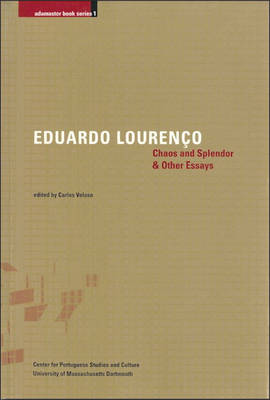
- Afhalen na 1 uur in een winkel met voorraad
- Gratis thuislevering in België vanaf € 30
- Ruim aanbod met 7 miljoen producten
- Afhalen na 1 uur in een winkel met voorraad
- Gratis thuislevering in België vanaf € 30
- Ruim aanbod met 7 miljoen producten
Zoeken
€ 26,45
+ 52 punten
Omschrijving
Seen from the dawn of the twenty-first century, the essays of Eduardo Lourenço (b. 1923) are a philosophical arch that spans the twentieth century, analyzing it and revealing its imaginary borders, dreams, contradictions, ghosts and angels. The symbol the Portuguese essayist derives from the previous century, that is, the figure that best portrays the cultural oscillations of that century, is the labyrinth. The act of searching for knowledge impels a person to enter a labyrinth, insofar as he tends to grasp meanings from different sources and phenomena. The more he tries to find his way out of the labyrinth -- to transform doubts into certainty -- the more he finds himself immersed in contradiction, in a continuous re-memorization of his inner ghosts. Literary works are the best guides Lourenço has found to free himself from the maze of culture, although he is aware that his literary friends may also turn out to be his enemies and nightmares. His philosophical background allows him to deal with literature in an emotional, passionate way -- his literary analyses are, most of the time, starting points for mythological interpretations of Portugal and Europe that merge poetry, sociology, anthropology, political science, and art history.
Specificaties
Betrokkenen
- Auteur(s):
- Uitgeverij:
Inhoud
- Aantal bladzijden:
- 192
- Taal:
- Engels
- Reeks:
Eigenschappen
- Productcode (EAN):
- 9780972256117
- Verschijningsdatum:
- 1/06/2002
- Uitvoering:
- Paperback
- Formaat:
- Trade paperback (VS)
- Afmetingen:
- 150 mm x 221 mm
- Gewicht:
- 408 g

Alleen bij Standaard Boekhandel
+ 52 punten op je klantenkaart van Standaard Boekhandel
Beoordelingen
We publiceren alleen reviews die voldoen aan de voorwaarden voor reviews. Bekijk onze voorwaarden voor reviews.











